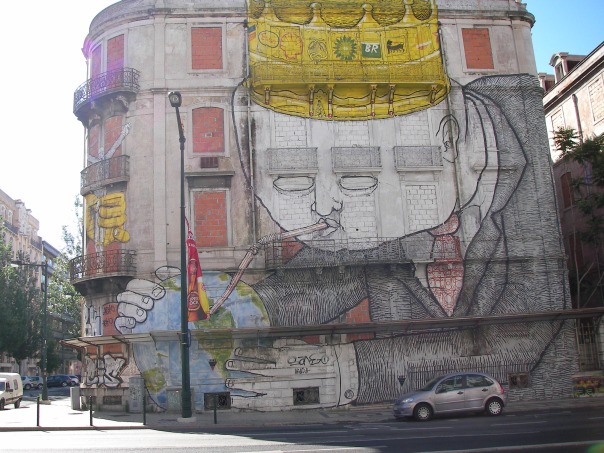Category Archives: the Plot Whisperer
How the %&*# can I find my voice?
They say I have to have a voice.
A voice when I am writing, that is. A voice that makes my writing instantly recognizable as mine. But where is this voice? And do I have it? Perhaps I have no voice at all!

I decided to practice. This was when I took my first steps in the preparations for writing a draft for a novel. I had previous experience in writing, that was clear. I had written research papers and even a thesis. So perhaps I had a scientific, tech-voice? If you want a sample of it, it may sound like this:
Fast motion along a predefined path is important in many robot applications, and requires utilization of the maximum allowable torque range. If the torque is at the limit, there is no margin to cope with disturbances or modeling errors, which may result in deviation from the path. A path velocity controller for modification of the velocity along the path when the torques saturate can improve path tracking. The path velocity controller acts as an outer feedback loop outside the ordinary robot controller, and modifies a nominal velocity profile, computed by minimum time optimization using available methods.
But now I should do fiction. What was meant by that? That I could, or perhaps should, make things up? That was sort of unfamiliar, at least if I wanted to gain some experience from my previous writings.
They say that authors blend in their own life in their stories. I had certainly heard of that. And I had also heard of angry relatives suing authors for making too many private things very public. So here one might need to tread softly, to avoid breaking hearts and making people upset. And it would also be important to show some dignity towards people who know me, and still want to know me, even after I have written the book.
I read Alan Watt, and I really liked his suggestions of stream-of-consciousness writing. I started with capturing small scenes from my life, and then trying to reproduce them onto a piece of computer screen. Here is a lunch sample, where a bunch of work-oriented persons eat, in a Scandinavian setting, doing their best to avoid the unspoken taboo of talking about work during lunch time:
They talk during lunch. Sometimes the conversation flows freely, and sometimes long periods of silence occur, broken after a while by some of the group using their creativity to come up with a new subject to talk about. They mostly talk about facts. They do not talk about feelings. No one says “did you read that book, it was truly fantastic, it gave me a complete new picture of the Chinese culture”. Perhaps someone says “did you know that there is a golf player who can reach 300 meters using only his putter”. This may be followed by a comment, like “did he do it in a contest?”, and perhaps a somewhat scientific observation in the style of “can he control his muscles or does he hit that hard all the time?”.
Since I always was a strange cross-breed between science guy and something more artistic (perhaps writing, perhaps rock and roll, perhaps opera – I still do not know), I tried to put some art into the writing. So here is Michael, character-to-be in Prevention – the book that I now prepare, leaving his rehearsal, only to be attacked and hit to the ground some minutes later:
Michael Dalton did not know, then, as he prepared himself for the rehearsals, that he was in for a new period of silence. This time it would not be determined by himself, as a result of a failed audition, but instead by forces outside of his own control. He did not know it when he sang his aria, or during the majestic sextet when he listened to the almost divine beauty of the Dove sono aria, and he did not know it when he said goodbye and see you tomorrow to his fellow actors and singers. Instead he felt happy and full of enthusiasm and life. He did not know, shortly thereafter when he mounted his bicycle for the short ride home, that this was the last rehearsal for him, at least for a long time to come.
He only knew it later in the night, when he woke up, stirred awake by a nurse at the nearby hospital, telling him to be quiet and yes you heard me right, you are not allowed to sing, neither to speak actually. You have to be very calm, and stay where you are, in this bed, at least for some days to come.
I found this a good way of practising, and I listened to the wise words of Austin Kleon, saying that no matter how hard you try to copy something or someone, you will always end up doing something original. I decided that this was a way of writing – take your experiences and write about them – however in a state of mind where you feel free to really invent things as you go along. And as a result, some new stuff, completely invented and not very true at all, may come out.
And when you read it afterwards, and revise it, you might even find it a bit interesting!
Of course you need structure too! I studied a bit about structure, for example by following a sequence of good videos in the Plot Whisperer series by Martha Alderson, and by reading a bit in Story: Style, Structure, Substance, and the Principles of Screenwriting.
I also found the snowflake guy a.k.a Randy Ingermanson interesting, and I started to subscribe to his newsletter.
And piece by piece, mood by mood, some scenes and also some characters emerged.
I also decided on the beginning. There would be a prologue, somewhat secretive with some hidden symbolic meaning at the end. And then there would be the first scene, opened by Annie Dalton, daughter of the great Oliver Dalton, professor of System Studies, in a phone call indicating potential problems.
Her first words are simply
“Dad, I’m sorry, I can’t make it. I have this pain in my stomach. I think I need to stay at home tomorrow.”
The timing is not perfect, since this is the day before Oliver and his wife Elizabeth are leaving for Munich, where they will meet Annie and where they will celebrate Oliver’s birthday, and everything is already neatly planned, including a list of all museums that Oliver wants to see.

They are not yet aware that Annie plays a part in a bigger scheme, where powerful organizations do what it takes to shape the society, and its inhabitants, in a for them desirable direction. And the old tradition of Eugenics, pioneered in the early 1900s, is suddenly both alive and well.